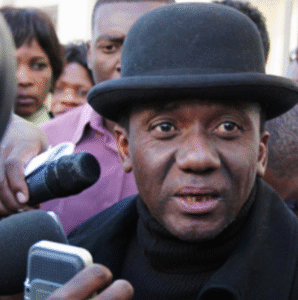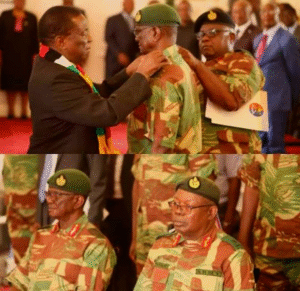ZIMBABWE’S CONSTITUTIONAL CRISIS: SPEAKER DEFIANT IN FACE OF HIGH COURT

In a striking display of defiance and what many are calling a blatant disregard for constitutional order, Zimbabwe’s Speaker of Parliament, Jacob Mudenda, has made a controversial move by sanctioning the removal of 18 main opposition members, including MPs and senators from the Citizens Coalition for Change (CCC). This action comes despite a High Court order explicitly directing a halt to these recalls, pending a legal challenge by the Nelson Chamisa-led party. The case’s hearing is slated for November 20th at 2:30 pm, but Mudenda’s actions have already sent shockwaves through the nation’s political landscape, raising serious questions about the state of democracy and rule of law in Zimbabwe.
The removal of the opposition members is part of a broader saga involving MPs recalls, which critics allege is orchestrated by state security agents and their covert allies, notably political activist Sengezo Tshabangu. This recent wave of recalls was announced shortly after a High Court session where Justice Tawanda Chitapi instructed that Mudenda should cease these actions while the CCC’s challenge to his authority was being reviewed. According to a lawyer who spoke to The NewsHawks, Mudenda’s lawyer was informed in court around 1:30 pm to halt the recalls, as Parliament was scheduled to sit at 2:15 pm, prior to the issuance of the written order. Despite this verbal notification, Mudenda proceeded with the new recalls, having been made aware of the court’s decision through his attorney.
This development is particularly alarming as it signifies a direct defiance of a High Court order. The lawyer emphasized that Mudenda was fully aware of the directive to stop the recalls before announcing the new removals. The written court order was eventually received post-4 pm, by which time the recalls had already been publicized. This act of defiance raises profound concerns about the respect for judicial authority and the separation of powers in Zimbabwe, principles that are foundational to any democratic and constitutionally governed nation.
The implications of this situation are grave. In a country striving for democratic norms and the rule of law, such actions by a high-ranking official like the Speaker of Parliament not only undermine the judiciary’s authority but also threaten the very fabric of constitutional democracy. Contempt of court charges and other serious consequences are typically expected in such scenarios, highlighting the abnormality and severity of the current situation.
Mudenda’s decision to push forward with the recalls, in spite of a clear judicial directive, speaks to a broader pattern of arbitrary and partisan conduct within Zimbabwe’s political framework. It exposes a troubling dynamic where power is wielded without regard to legal boundaries and constitutional mandates. This latest episode in the MPs recalls saga not only challenges the legitimacy of Parliament’s actions but also casts a shadow over the nation’s commitment to upholding democratic principles and respecting the rule of law.
As the country awaits the hearing on November 20th, there is growing apprehension about the future of Zimbabwe’s parliamentary democracy. The CCC’s legal challenge against Mudenda’s authority and the unfolding political drama will be closely watched, both within Zimbabwe and by the international community, as a litmus test for the nation’s adherence to constitutional governance and judicial independence.




